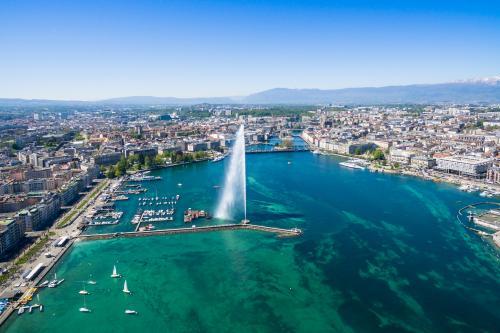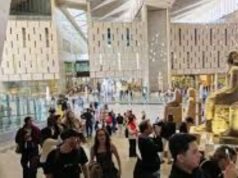The World Tourism Organization (UNWTO ), the World Trade Organization (WTO), the World Travel & Tourism Council (WTTC), and the International Trade Centre (ITC) have issued the joint communication “Tourism, Trade and the WTO” affirming the importance of enhanced global cooperation on trade & tourism, and encouraging greater participation of the tourism sector in trade policy.
As the third-largest sector in international trade,[1] accounting for 10.4% of global gross domestic product (GDP) and supporting 313 million jobs worldwide, the tourism sector is making strong contributions towards achieving the Sustainable Development Goals (SDGs).
Released to coincide with the 2018 WTO Public Forum, this joint communication aims to highlight the importance of tourism, while also emphasizing the crucial role of the WTO in ensuring the smooth and predictable functioning of trade, including for the tourism sector.
According to WTTC, between 7 and 19 million new jobs could be created in the G20 countries alone by investing in biometrics and new airport infrastructure to make existing terminal facilities and processes more efficient, more secure and seamless for passengers. In addition, GDP associated with travel and tourism grew one and a half times more than the world economy in 2017, at 4.6%, and the projections indicate that the sector will continue to outpace global economic growth.
Under the main theme of “Trade 2030”, the WTO Public Forum’s sub-themes for 2018 are sustainable trade, technology-enabled trade, and a more inclusive trading system. Projections extending to 2030 indicate that the tourism sector is expecting continued rapid growth, with international tourist arrivals worldwide expected to increase by 3.3% per year to reach 1.8 billion by 2030, according to UNWTO’s long-term forecast report Tourism Towards 2030. At the same time, the market share of emerging economies, which has already increased from 30% in 1980 to 45% in 2016, is expected to reach 57% by 2030, equivalent to over 1 billion international tourist arrivals.
It must be further emphasized that the international trading system has enormous effects on international tourism, not only with regards to the transport of tourists across borders, but also the procurement of the multitude of goods and services –from safari jeeps to restaurant chefs to hotel accounting software – essential for the supply of international tourism
To shed further light on developments in the tourism sector, a dedicated session was held at the 2018 WTO Public Forum on 3 October from 14:00-15:30. Organized by the WTTC, UNWTO, ITC and WTO, “Innovation and digital transformation for sustainable and inclusive tourism” featured a top-level panel of speakers whom explored how to prevent disruptions and ensure the continued functioning of the global tourism industry. These included Franck Mwe di Malila, Ministre of Tourism, Democratic Republic of Congo; Gloria Guevara Manzo, President and Chief Executive Officer, WTTC; Jaime Alberto Cabal Sanclemente, Deputy Secretary-General, UNWTO; Arancha González, Executive Director, ITC; and Torbjörn Fredriksson, Chief, ICT Policy Section, United Nations Conference on Trade and Development. The session was moderated by Dale Honeck, Senior Counsellor, WTO’s Trade in Services and Investment Division.












